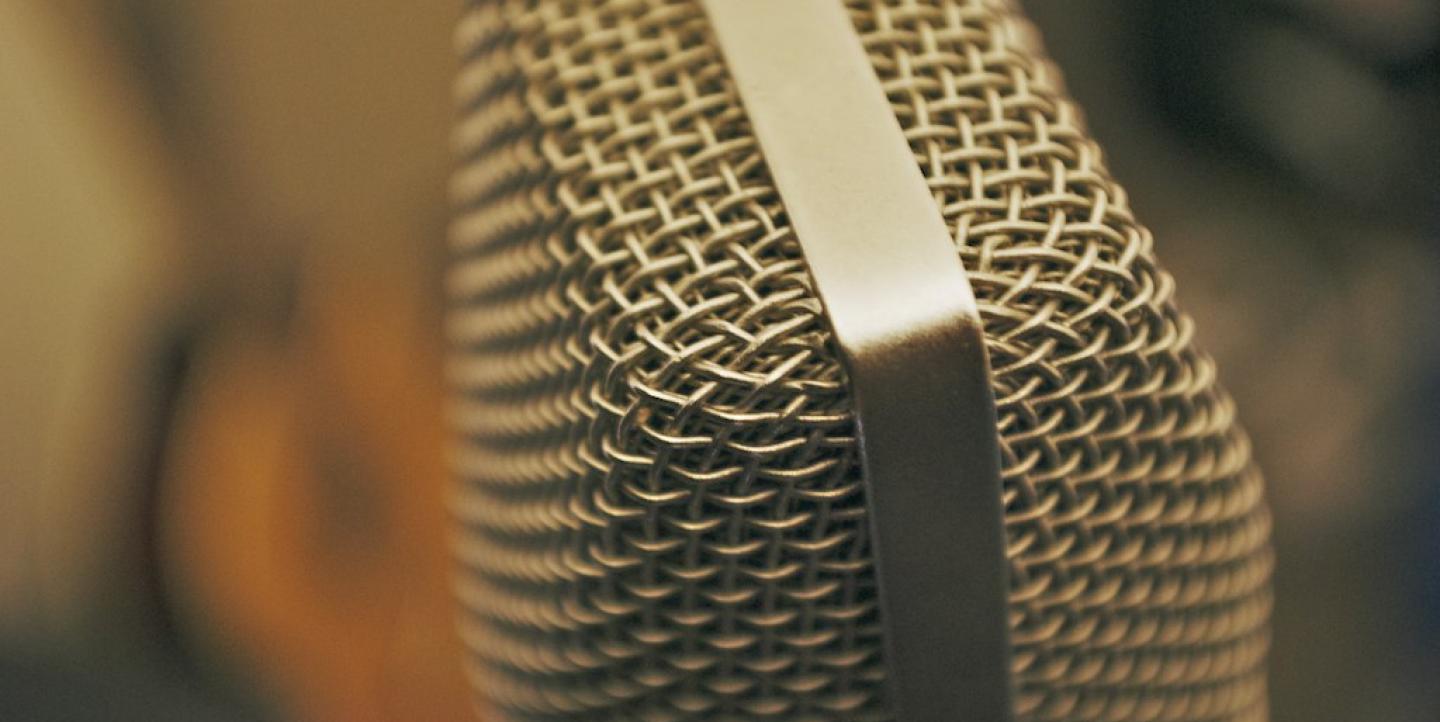Podcasts continue to flourish in 2016, with ever more journalists and news outlets embracing the medium to reach their audience's earbuds. And no podcast has hit the airwaves quite like Modern Love, a powerhouse audio collaboration between Boston public radio station WBUR and The New York Times. Extraordinarily, the podcast debuted at No. 1 last month.
Over the past 11 years, the Times has published more than 600 Modern Love essays, which are reader-submitted narratives that "explore the joys and tribulations of love." Now, the podcast version delivers that same content in an audio format with a pretty simple strategy: Repurpose. It's digging up some of the most classic narratives from the Modern Love archives and making them into captivating audio, or what the show's managing producer Jessica Alpert likes to call "a movie for your ears."
"The idea is to use the column as the basis for beautiful sound design that really makes the story come alive," Alpert says. "The question for us is 'How do we make this into something that you can hear?'"
The idea was born two years ago by a producer at WBUR's innovation hub iLab. WBUR got the green light last summer and started production in September, working in close collaboration with Modern Love editor Daniel Jones.
The podcast's format is pretty straightforward. The first part is a produced reading of a Modern Love essay (think masterful reading plus music and ambient sound). Then, host Meghna Chakrabarti leads a more informal conversation about the column with Jones, usually with the essay's original writer, too. Episodes run around 20 minutes.
The podcast's most critical component is its content, Alpert says, which means selecting the right essays is key. And that's not always easy; just because something is beautiful on paper doesn't mean it will translate well into audio. So Alpert and her colleagues are looking for essays with specific elements that they can make come alive through sound, like scenes, dialogue and descriptives. Essays that are too cerebral or full of internal dialogue won’t work.
Also critical is the selection of an appropriate reader. Modern Love is using celebrity voices (mainly actors) to read the essays, chosen through an in-depth casting process.
"It's not easy to keep someone listening for 15 minutes, and you don't do that by just reading text into a mic," Alpert says. "You have to think, 'Would someone enjoy listening to this person speak? Is it pleasurable?'"
Episodes have been narrated by well-known actors including Dakota Fanning and Jason Alexander, touching diverse themes like open adoption, online dating, the death of a parent and a date that ended in an emergency. They aim to make listeners "laugh, cry and think."
And so far, the formula has worked. As discussed on a recent episode of Current, a public media trade publication, the podcast hit No. 1 on the charts on its first day, even temporarily eclipsing the well-known Serial podcast. Given that there are some 300,000 podcasts in the world, that’s a huge feat.
Among the podcast's early secrets: On launch day, it debuted two episodes instead of just one, doubling download numbers and giving listeners a sense of the range of content they could expect to hear on the podcast. The launch also followed months of online marketing and promotion, including online and print ads and a big social media push on Twitter and Facebook. An audio trailer was released in early December.
As podcasts like Modern Love continue to raise the bar, Alpert says it's a great time for journalists to experiment with audio. Even without deep resources, interested podcasters can access a range of online tutorials, such as on YouTube. Resources such as the Free Music Archive offer music and sound for free. ("It’s important to use music that you have rights to use if you want your project to go anywhere," she says.)
Most importantly, she recommends journalists practice developing a critical ear and learning to dissect standout audio pieces.
"When you love something you hear, think about why," she says. "If you turned it off, why? Were you bored? Was the voice so annoying you couldn’t handle it? Break it down. That will help you as you figure out your own project."

